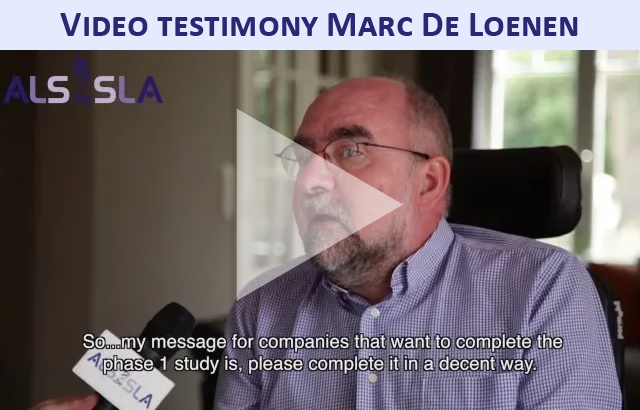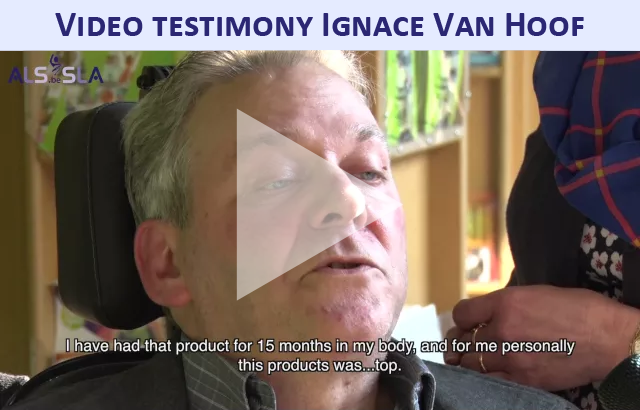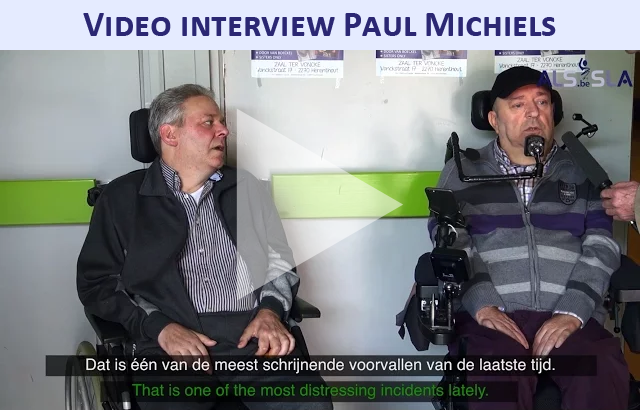Promising VEGF-study for treatment ALS has been suddenly discontinued
26-04-2016
A few years ago, ALS (Amyotrophic Lateral Sclerosis), a progressive paralyzing muscle disease which affects the motor neurons in the spinal cord, the brain stem and the motor cortex of the brain, became more famous thanks to the Ice Bucket Challenge. It challenged people via social media to choose between throwing a bucket of ice over their head or making a donation on behalf of ALS patients. Although there is a lot of research going on, there is still no cure for this disease. In October last year, a promising VEGF-study has been suddenly discontinued.
ALS is a deadly muscle disease that affects muscle groups one by one and it strikes approximately 7 out of 100.000 people. Patients pass away on average between two to five years after being diagnosed because of paralysis of breathing or swallowing muscles. Although there is a lot of research going on, there is unfortunately no cure for the disease.
VEGF-study
A promising possible treatment is the intra-cerebro-ventricular administration of the protein VEGF (Vascular Endothelial Growth Factor) in ALS patients. These proteins are continuously administered via an infusion system, consisting of a pump and an infuse that is implanted by surgery. In 2009, Newron Sweden AB, Medtronic and ICON Clinical Research started a study with experimental subjects to examine if this treatment improves the motoric functions of ALS patients and if it prolongs the lifespan of these people.
In October 2015, this study has been suddenly discontinued without any consideration. Reasons for this study being stopped are problems with the development and supply of the infusion system and the low profit margins.
Physical decline
The people who participated in this investigation remain behind. They were told they could count lifelong on this treatment. Although there were no results published yet from the first study, some patients felt that they could benefit from this treatment. Now that the study has been discontinued and the patients are no longer administered with VEGF, several amongst them notice a fast and strong decline. They also experience difficulty with the -now unnecessary- infusion system. They can only remove the pump and infuse via new surgery under general anesthesia, which is not without any risks. A patient that participated in the study testifies:
“It is hard for me to cope with the fact that I underwent such a heavy surgery but could participate for a small period only. Over a short time my capabilities are now worsening fast and talking and swallowing becomes more and more difficult”
Furthermore, besides physical inconveniences like difficult surgery, punctions of the spinal cord, blood samples, hospital transportation and taking medicines, patients also had a few financial costs like for transportation and consultations. Now the study has been discontinued, this all seemed for nothing. Patients respond very disappointed: “This way, they take away a ray of hope for the people who suffer from this terrible disease. Why do they first create hope and then take it away?”
Another patient who participated in the study shares this opinion:
“After being treated with VEGF, the decline was much slower than before. Because I believe in the benefit of VEGF, I am therefore extremely disappointed that this study has been discontinued.”
Reaction from ALS Liga
Obviously, the ALS Liga is very disappointed that this study has been discontinued. Firstly for the people who participated in this study and unexpectedly had to end their treatment and secondly for all other patients who lose a ray of hope. We trust in scientific research and we keep on hoping that there will be a treatment for ALS in the future.





